The art of storytelling is as much a part of Irish culture as the Celtic myths or the lively Irish music. So it’s no wonder that this island has produced and continues to produce many famous writers…
Page Contents (click line to jump the text)
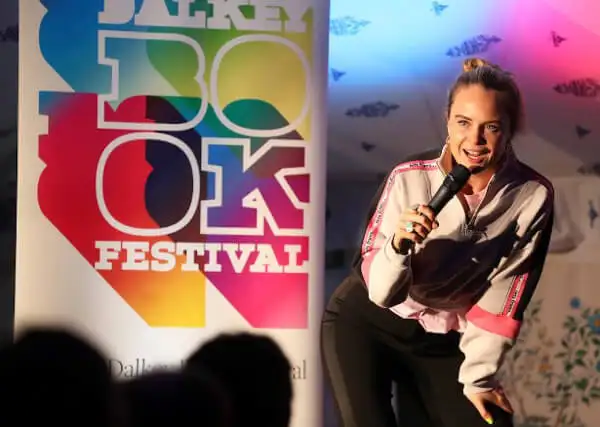
Intro
I’m travelling on the Irish Ferries ferry from Cherbourg in France to Dublin. The name of the ship is W.B. Yeats.
In Dublin, I stroll through the city centre. On the way, I come across George Bernard Shaw at the National Gallery, Oskar Wilde in Merrion Square and James Joyce at the Spire. All statues, of course.
I admire the Long Room of Trinity College and the Book of Kells, take a guided tour of the city with a storyteller and end the evening with a literary evening in the pub.
History and stories are everywhere on the island and are part of Irish culture.
I know Dublin quite well, as I live not far south of the city. My family and I are originally from Germany, but have been living in Ireland for a few years (second home).
For the bookworms among us, let’s delve a little deeper into the subject and immerse ourselves in the literary world of Dublin:
The UNESCO City of Literature Dublin
Dublin is the fourth of a total of 42 UNESCO cities of literature.
The 4 Nobel Prize winners, Yeats, Beckett, Shaw and Heaney, as well as Bram Stoker, James Joyce and other impressive poets and writers whose works have travelled the world, certainly contribute to this.
But Dublin’s current living culture also celebrates words and writing, poetry, writing, theatre and music-lyrics.
With a host of universities, theatre and book festivals, a prestigious literary prize and many venues, the literary scene in Dublin is alive, thriving and flourishing.
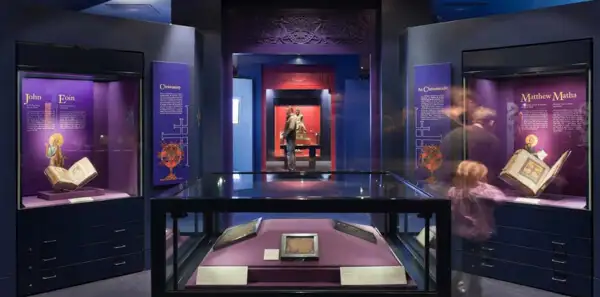
Dublin’s Literature Festivals
Let’s dive into Dublin’s vibrant literary scene and start with the festivals:
The Dalkey Book Festival
Dalkey is a small harbour town south of Dublin. James Joyce was once a teacher at the school here. Today, Dalkey is the venue for the Dalkey Book Festival in June. With prominent speakers and an exciting programme, it attracts thousands of Irish reading enthusiasts every year. See: https://www.dalkeybookfestival.org/.
The Dublin Book Festival
The Dublin Book Festival takes place in November. Ireland’s largest book festival brings a huge programme and promotes the Irish publishing world, not just writers but all other publishing related professions. Over 80 events over 5 days – it doesn’t get any bigger than this. See: https://dublinbookfestival.com/.
The Dublin Writers Festival
The International Dublin Writers Festival also takes place in Dublin in September. As the name suggests, it’s all about promoting the writing profession and its hopeful young writers. Great speakers and training programmes for writers at every stage of their writing career – if you’re a writer, this event is for you. The guests are international, by the way. See: https://internationaldublinwritersfestival.com/.
The International Literature Festival Dublin
The International Literature Festival Dublin takes place in May. This is a big festival for the whole family, with a children’s programme and numerous formats for everyone. Do you like books? Then you’ve come to the right place. See: https://ilfdublin.com/.
The Bloomsday Festival
In June, Ireland celebrates the poet James Joyce. The James Joyce Centre hosts the festival where many visitors dress up in classic costumes from Joyce’s time and follow the songs, plays, poetry readings and other events in style. See: https://www.bloomsdayfestival.ie/.
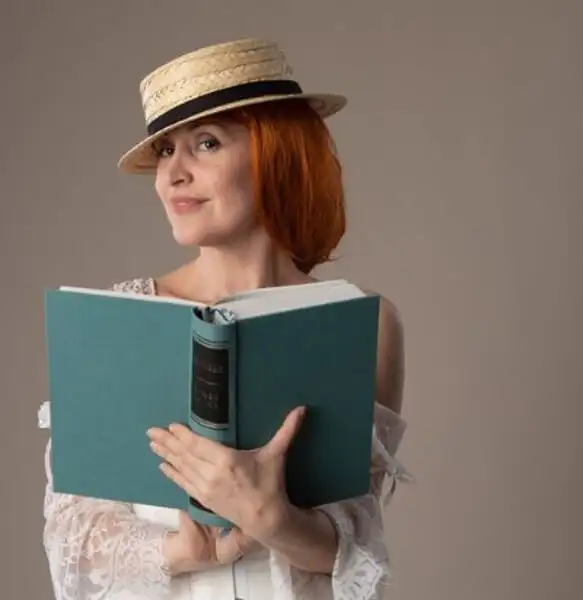
At all of these events you can experience exciting contemporary Irish writers and poets in person. So who are the current greats in Irish literature? We’ll get to that now…
Prominent contemporary Irish writers and their books
Here is a list of some of the island’s current, more well-known writers, poets and literary figures:
Colm Tóibín (b. 1955) – An award-winning writer, known for works such as ‘Brooklyn’ and ‘The Master’. His work often explores themes of identity, love and exile.
Roddy Doyle (b. 1958) – An author known for his realistic depictions of modern Ireland, particularly through books such as “The Commitments” and the Barrytown trilogy.
Anne Enright (b. 1962) – Winner of the Man Booker Prize for her novel “The Gathering”. She is known for her subtle storytelling and deep characters.
Sally Rooney (b. 1991) – A young author who rose to international fame with works such as “Normal People” and “Conversations with Friends”. Her books often deal with interpersonal relationships and modern love.
Paul Muldoon (b. 1951) – A major contemporary poet from Northern Ireland known for his complex poetry and experimentation. He has won the Pulitzer Prize for Poetry.
Eimear McBride (b. 1976) – An author whose debut novel “A Girl Is a Half-Formed Thing” received much acclaim. Her style is known for its experimental language and intensity.
Kevin Barry (b. 1969) – A writer known for his idiosyncratic stories and novels, including “City of Bohane” and “Night Boat to Tangier”.
Bernard MacLaverty (b. 1942) – A writer from Northern Ireland known for his novels and short stories, including “Cal” and “Grace Notes”.
Joseph O’Connor (b. 1963) – A writer and playwright who has written novels such as “Star of the Sea” and “Shadowplay” and is also known for his theatre plays.
Anna Burns (b. 1962) – Winner of the Man Booker Prize for her novel “Milkman”, which offers a unique narrative voice and an intense portrayal of Northern Ireland in the 1970s.
There are many more exciting writers in Dublin and Ireland and some young talent that we will be hearing and reading about in the years to come.
Let’s get back to your visit to Dublin and what you can do there – here are my tips:
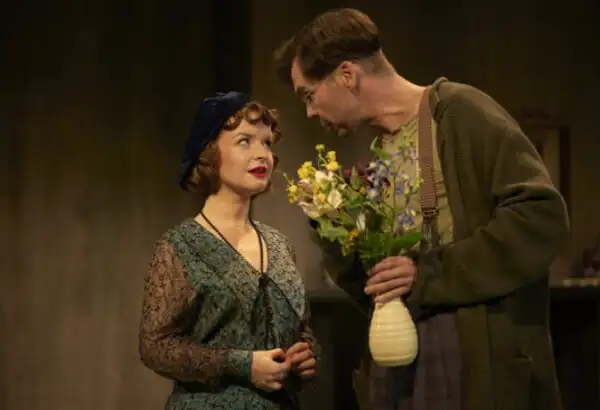
Experience literature in Dublin – my tips
Book Festivals are not the only opportunity to experience and celebrate good texts in person. Here are a few more great tips for you:
The Abbey Theatre
Formerly founded by W.B. Yeats and Lady Gregory, the Abbey Theatre is Ireland’s national theatre. It is run by artists, promotes young artists and is committed to creating bold theatre around the questions: “Who were we?” and “Who are we today”? A top address for exciting theatre and excitingly written plays! See: https://www.abbeytheatre.ie/.
The Dublin Literary Pub Crawl
In the summer months, from April to October, you can take part in the Literary Pub Crawl. This is a tour of Dublin and several pubs, together with actors. They quote and recite from Yeats, Wilde, Joyce, Behan and Beckett, telling the story of the poets and the history of the pub. The tour lasts just over two hours and ends at Trinity College. Literature is better told and heard in Ireland with a good pint… See: https://www.dublinpubcrawl.com/.
The James Joyce Centre
This historic townhouse in Dublin City Centre preserves the memory of one of Ireland’s most influential writers. You can visit the house, attend theatre performances and readings or take part in a walking tour of the north city – “Introducing Joyce’s Dublin”. See: https://jamesjoyce.ie/.
Trinity College, the Old Library with the Long Room and the Book of Kells
Probably the most famous book in Ireland was not written by Joyce or Yeats, but by monks and illustrated with great artistry: The Book of Kells dates back to the early Middle Ages and you can admire it in a small but fine exhibition in the old library of the venerable Trinity College. Here you will also find the spectacular wood-panelled Long Room with books on several floors. Both are well worth seeing and the interior of Trinity College is also very beautiful. See: https://www.visittrinity.ie/book-of-kells/.
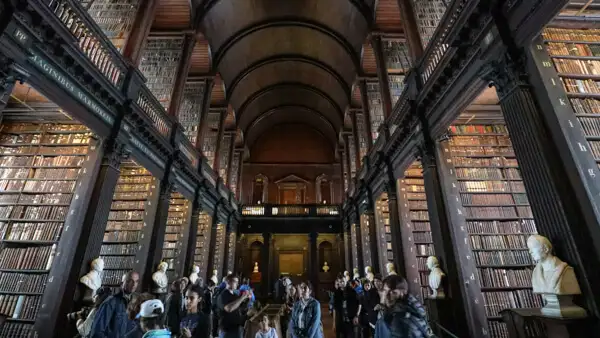
The Chester Beatty Library
Here you will find a wonderful collection of manuscripts and writings from the world’s great religions. There are several very interesting exhibitions and various events. See: https://chesterbeatty.ie/exhibitions/.
The Museum of Literature Ireland
The MoLI should of course not be missing from this list. Here you will find treasures from the National Library, exhibitions, readings and events centred on the art of writing. A must for literature fans! See: https://moli.ie/.
Ulysses Rare Books
This is not a museum, but a special bookshop with literary treasures and antiquarian treasures. Just have a browse! See: https://www.rarebooks.ie/.
The Winding Stair
This is also a very special bookshop, a relaxed oasis in the hectic city with a unique atmosphere. You can browse between old and new works in peace and quiet and there is also a very good café with delicious Irish dishes. See: https://www.winding-stair.com/.
Marsh’s Library
This is another highlight: the old library dates back to the 18th century – and looks like one too! Old books in long rows of shelves in a historic building with a beautiful garden. Just pop in for a visit: See: https://marshlibrary.ie/.
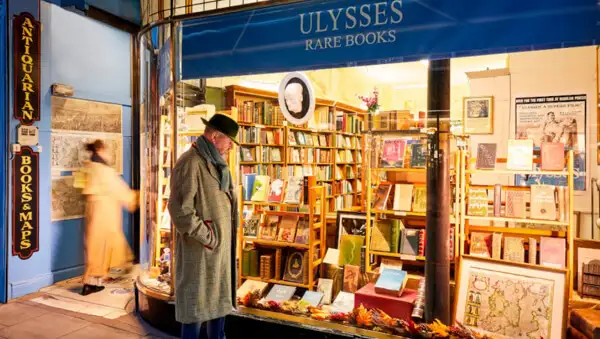
Legendary Irish poets and writers of the past and their books
There are many literary legends in Dublin and on the island of Ireland. Among the better known are certainly:
James Joyce (1882-1941) – Famous for works such as “Ulysses” and “Dubliners”, he is considered one of the most important writers of the 20th century.
W.B. Yeats (1865-1939) – An important poet and playwright who won the Nobel Prize for Literature. His works include poems such as “The Tower” and “The Winding Stair”.
Oscar Wilde (1854-1900) – Known for his satirical works and his play “The Importance of Being Earnest”. He was also known for his epigrammatic writing style.
Jonathan Swift (1667-1745) – Author of “Gulliver’s Travels” and influential satirist of his time.
Samuel Beckett (1906-1989) – Another important writer of the 20th century, known for works such as “Waiting for Godot”.
Bram Stoker (1847-1912) – Author of “Dracula”, one of the most famous works of horror literature.
George Bernard Shaw (1856-1950) – A playwright who won the Nobel Prize for Literature and is known for works such as “Pygmalion”, which was later adapted as the musical “My Fair Lady”.
Lady Augusta Gregory (1852-1932) – A co-founder of the Abbey Theatre and an important figure in the Irish literary renaissance.
Seamus Heaney (1939-2013) – A major contemporary poet who won the Nobel Prize for Literature. His poems often reflect Irish themes.
Edmund Burke (1729-1797) – A political thinker and writer known for his works on philosophy and politics, including “Reflections on the Revolution in France”.
These authors have shaped the Irish literary landscape in different ways and have spread Irish literature throughout the world.
Conclusion
Dublin is rich in history and rich in stories. Written stories, told stories, acted stories and, above all, experienced stories.
There is probably no other country where storytelling is celebrated as much as here. And there is probably no other city where you can experience past and present storytellers as beautifully and as closely as in Dublin.
If you’re a bookworm, welcome home!
Have fun in Ireland and have fun in Dublin!
More interesting articles for you
DUBLIN FOR ART LOVERS
FESTIVALS IN DUBLIN – PARTY LIKE THE IRISH!
THE MUSEUMS OF DUBLIN
FREQUENTLY ASKED QUESTIONS AND ANSWERS ABOUT DUBLIN
Picture credits cover picture: Old Library Long Room in Trinity College, Photo by Ulrich Knüppel-Gertberg (www.irland-insider.de, www.ireland-insider.com)